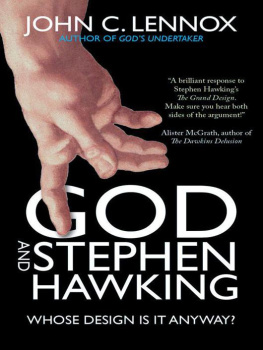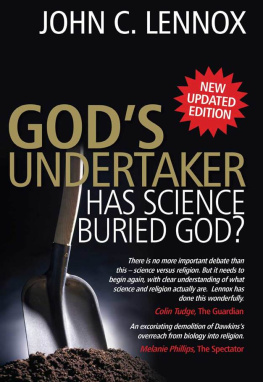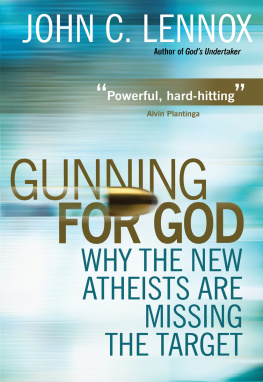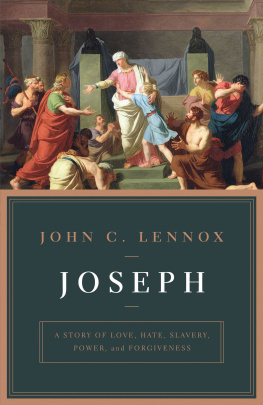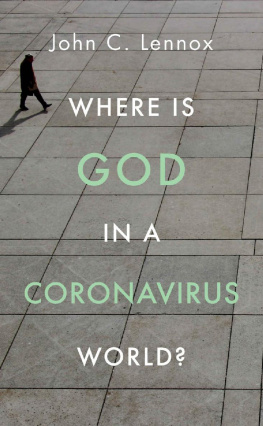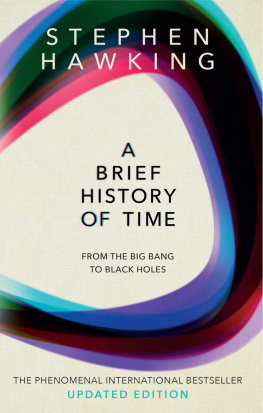My thanks are due to Professors Nigel Cutland and Alister McGrath for constructive advice.
Preface
I have written this short book in the hope that it will assist my readers to understand some of the most important issues that lie at the heart of the contemporary debate about God and science. For that reason, I have tried to avoid technicality where possible, and concentrate on the logic of the argument. I believe that those of us who have been educated in mathematics and the natural sciences have a responsibility for the public understanding of science. In particular, we have a duty to point out that not all statements by scientists are statements of science, and so do not carry the authority of authentic science even though such authority is often erroneously ascribed to them.
Of course that applies to me, as much as to anyone else, so I would ask the reader to scrutinize the arguments I have used very carefully. I am a mathematician and this book is not about mathematics, so the correctness of any of the mathematical results I may have proved elsewhere is no guarantee of the correctness of what I have said here. I do, however, have confidence in my readers ability to follow an argument to its conclusion. I therefore submit what I have written to their judgment.
Introduction
God is very much on the agenda these days. Scientists have made sure of it by publishing book after book, with titles like Francis Collins The Language of God , Richard Dawkins The God Delusion , Victor Stengers God: The Failed Hypothesis , Robert Winstons The Story of God , and so on, and on.
Some of these books have been runaway best-sellers. People obviously want to hear what the scientists have to say. That is not surprising, for science has immense cultural and intellectual authority in our sophisticated modern world. This is, in part, because of its phenomenal success in generating technologies from which all of us benefit, and in part because of its capacity to inspire, by giving us increased insight into the wonders of the universe as communicated by beautifully made television documentaries.
For that reason many people, increasingly aware that the material spin-offs from science do not satisfy the deepest needs of their humanity, are turning to the scientists to see if they have anything to say about the big questions of existence: Why are we here? What is the purpose of life? Where are we going? Is this universe all that exists, or is there more?
And these questions inevitably make us think about God. So millions of us want to know what science has to say about God. Some of the above best-sellers are written by atheists. But, and this is the important thing, not all the authors are atheists. This tells us at once that it would be very nave to write off the debate as the inevitable clash between science and religion. That conflict view of the matter has long since been discredited. Take, for example, the first author on our list, Francis Collins, the Director of the National Institute of Health in the USA, and former Head of the Human Genome Project. His predecessor as head of that project was Jim Watson, winner (with Francis Crick) of the Nobel Prize for discovering the double-helix structure of DNA. Collins is a Christian, Watson an atheist. They are both top-level scientists, which shows us that what divides them is not their science but their world-view. There is a real conflict, but it is not science versus religion. It is theism versus atheism, and there are scientists on both sides.
And that is what makes the debate all the more interesting, because we can then focus on the real question at stake: does science point towards God, away from God, or is it neutral on the issue?
One thing is clear straightaway. This remarkable surge of interest in God defies the so-called secularization hypothesis, which rashly assumed, in the wake of the Enlightenment, that religion would eventually decline and die out in Europe at least. Indeed, it could well be that it is precisely the perceived failure of secularization that is driving the God question ever higher on the agenda.
According to distinguished journalists John Micklethwait and Adrian Wooldridge of The Economist , God is Back This particular development has understandably proved infuriating for the secularists, especially the atheist scientists among them.
The protest is loudest in Europe, perhaps because atheists feel Europe is where they have most to lose. They are probably right; and there are signs that they are losing it. Richard Dawkins, still the pack leader, has been frantically turning up the volume from loud to shrill, as the logic of his argument fractures at least so it would seem, even to many of his fellow atheists. He is determined to raise the consciousness of the public, by recruiting as many disciples as possible to spread his faith that atheism is the only intellectually respectable viewpoint on the market. His campaign has even extended to posters on bendy-buses and atheist summer camps for children; not forgetting, of course, large lapel badges marked with a red A for atheist, and any number of intelligently designed T-shirts.
Whether this campaign had anything to do with it or not I dont know, but one very powerful scientific voice has been added to the atheist choir that of physicist Stephen Hawking. Around the world the headlines were full of it: Stephen Hawking says universe not created by God, Stephen Hawking says physics leaves no room for God, and so on with many variations. The headlines were referring to the publication of a new book by Hawking and his co-author Leonard Mlodinow, The Grand Design . It raced immediately to the top of the best-seller charts. The public confession of atheism by a man of such high intellectual profile as Hawking has had the instant effect of ratcheting up the debate by several notches. It has also sold a lot of books.
What are we to think? Is that it, then? Is there nothing more to discuss? Should all theologians resign their chairs forthwith? Should all church workers hang up their hats and go home? Has the Grand Master of Physics checkmated the Grand Designer of the Universe?
It certainly is a grandiose claim to have banished God. After all, the majority of great scientists in the past have believed in him. Many still do. Were Galileo, Kepler, Newton and Maxwell, to name a few, really all wrong on the God question?

